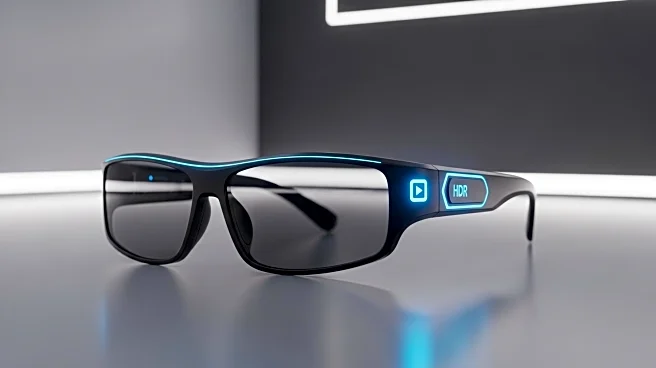What's Happening?
Ray-Ban has released the Meta Gen 2 smart glasses, which offer significant improvements over the original model. The new glasses feature enhanced battery life and higher-resolution video capabilities. The battery life has been doubled, providing approximately 8 hours of general use, while the charging case now offers up to 48 hours of power. Video recording has been upgraded to a maximum resolution of 3K, with a 60 fps option available for 1080p recordings. Despite these advancements, the glasses maintain the same weight and features as the previous generation, with no upgrades to the speakers or still photo capabilities.
Why It's Important?
The improvements in battery life and video quality make the Ray-Ban Meta Gen 2 glasses more competitive in the smart wearables market. These enhancements are crucial for users who rely on smart glasses for activities such as video recording during sports or outdoor activities. The increased battery life reduces the need for frequent recharging, making the glasses more convenient for extended use. Additionally, the higher video resolution offers better image quality, which is important for users who prioritize capturing detailed visuals. These upgrades could attract more consumers to smart glasses, potentially influencing the market dynamics and encouraging further innovation in wearable technology.
What's Next?
Meta plans to roll out a software update on October 1, which will enable the 60 fps video recording feature for the Ray-Ban Meta Gen 2 glasses. This update coincides with the release of the Oakley Meta Vanguard smart glasses. Users can expect further improvements in video recording capabilities, enhancing the overall user experience. As the market for smart glasses continues to evolve, other manufacturers may introduce similar or superior features, leading to increased competition and innovation in the wearable technology sector.
Beyond the Headlines
The release of the Ray-Ban Meta Gen 2 glasses highlights the growing integration of AI in wearable technology. As smart glasses become more advanced, they may surpass smartphones as the defining device of the AI era. However, concerns about privacy and data security remain, as Meta's track record in these areas is not strong. Users should be aware of the potential risks associated with using smart glasses, particularly regarding the use of personal data for AI training purposes.









